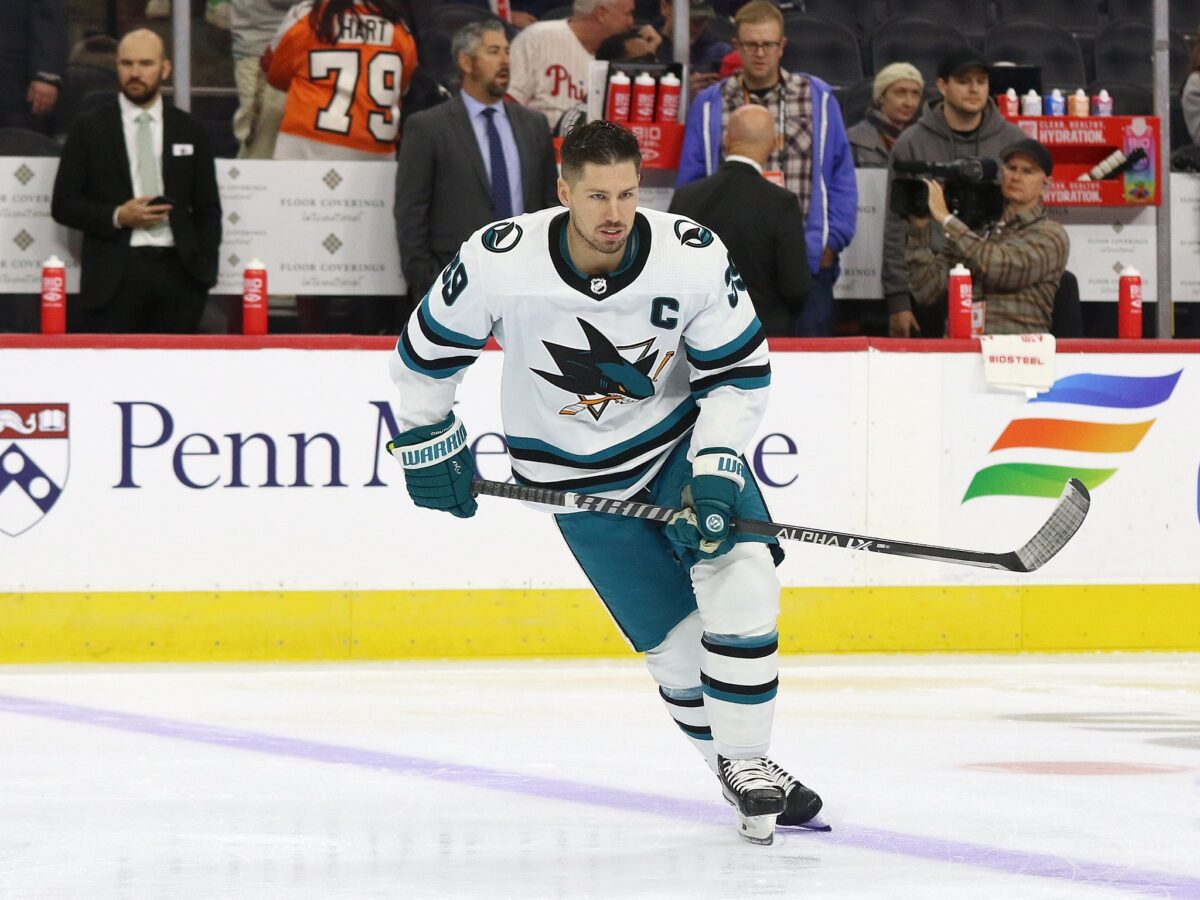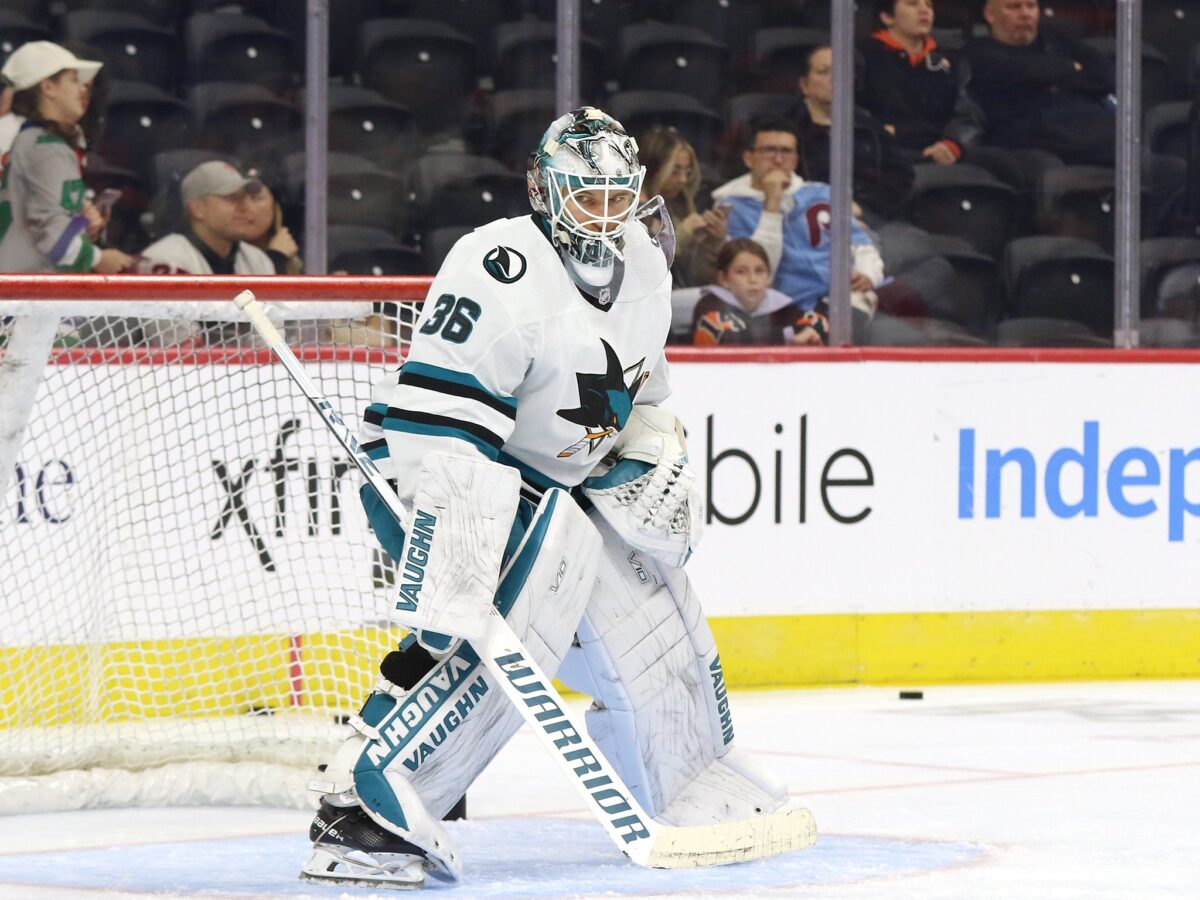The San Jose Sharks have concluded their season following a 5-2 loss to the Edmonton Oilers, finishing the 2022-23 campaign with 60 points and securing top-four odds to win the first overall pick at the May 8 Draft Lottery. It is the fourth-worst full-length season in franchise history and indicates that several more seasons of struggle may be on the way. To make sense of such a disappointing year, it is worth examining some specific statistics that tell the story of the Sharks’ difficulties, as well as a few bright spots. Here are five numbers that summarize the good and bad of their season.
27 Losses After Scoring First
The Sharks had 19 regulation losses and eight overtime or shootout losses in which they scored the first goal of the game. Each of these led the NHL, and the two combined led the league by an enormous margin. Furthermore, the Sharks had a .372 winning percentage when scoring first. Only one other team, the Anaheim Ducks, failed to win at least half of their games in which they tallied the opener, and they scored first 18 fewer times than the Sharks did.

San Jose had the opening goal in 43 of their 82 games — placing them in the top half of the league in this category — but proved to be worse at holding leads than any other team. Perhaps this was the result of dressing a lot of players without much NHL experience, or simply the result of a defense that struggled at times, particularly when holding leads late in periods. No matter the cause, the Sharks lost numerous games in which they put themselves in a prime position to win.
8 Home Wins
In the context of the franchise, this season was historically bad on home ice. The Sharks managed just eight wins at SAP Center, which ties the organization’s all-time low for home wins in a season. It’s also the fewest since they began calling the arena in San Jose home — the other season came in 1992-93 when the team still played at the Cow Palace in nearby Daly City. They were the only team in the NHL this season with fewer than 12 home wins, and their 27 home points are also a league low.
And it’s not like the relatively-low attendance this year provides much of an explanation — the Sharks went 0-8-3 in sellouts.
In past seasons, when the Sharks were playoff contenders, they had consistently loud home crowds. At the same time, they never relied on the Shark Tank, and “Road Ice Advantage” served as a rallying cry for the team at various times. But what happened this year is different. To be this poor at home is a recipe for a disastrous season.
.881 Save Percentage
The Sharks gave four goaltenders time in net this season, and they combined to post the league’s lowest save percentage. The .881 mark doesn’t adjust for empty-net goals, but San Jose remains in last place when adjusting anyway. It’s the fourth-worst team save percentage in franchise history, and several factors are at play.
First is the lack of a clear number-one goaltender. James Reimer and Kaapo Kahkonen both turned in excellent performances at times, but it seems as though neither is quite skilled enough to be the bona fide starter on a playoff team. Furthermore, the constant shifting between the two — Reimer earned 41 starts while Kahkonen had 37 — led to a situation where neither could establish a consistent rhythm in the cage.

But just as important is the lack of support they received from the defense. Time and time again, the skaters put their netminders in difficult situations by conceding breakaways, committing bad turnovers and letting opposing players slip free to get clean looks at the net. The defensive challenges both on the ice and in goal provided a perfect storm for the Sharks to allow 315 goals, third-most in the NHL.
82.4% Penalty Kill
The biggest team-wide strength for the Sharks was the success they found on the penalty kill. They killed 82.4% of the penalties they faced, good for seventh in the league. They employed a number of skilled penalty-killing forwards such as Nico Sturm and utilized a smart strategy that allowed some players to attack the puck while others dropped back to defend the rest of the ice.
Related: 3 Sharks Who Are Playing Well During Difficult Span
The blend of aggression and caution proved useful in limiting opposing power-play offenses and largely remained steady even when the defense struggled in even-strength situations. In fact, in a difficult season, the Sharks need to look for positive developments, and nothing was more positive than the proficiency of the shorthanded unit.
101 Points for Erik Karlsson
Simply put, Erik Karlsson’s 2022-23 campaign was one of the best offensive seasons ever for a defenseman. His 101 points are the most by a blueliner in more than 30 years, and he did so for a team that finished 25th in the NHL in goals. He carried the Sharks to adequacy on offense every time he stepped on the ice. To make his accomplishments even more remarkable, he achieved them while playing in all 82 games, the first time since 2016 that he played every game in a season.
Despite being an objectively poor defender, Karlsson may very well win the Norris Trophy this year on the strength of his offense. Not long ago, he was largely being written off, viewed as aging out and no longer the dominant player he once was. Instead of accepting that as his fate, he recommitted himself and returned to his role as one of the greatest offensive defensemen to ever play the game of hockey. In a difficult season for his team, he deserves tremendous praise for doing everything he could to make their offense competitive.
Sharks Have Clear Places to Improve Next Season
Every item discussed in this article — both positive and negative — can have an impact on the Sharks next season.
It’s not too much of an ask for this team to improve at holding leads and improve at home. Shoring up the defense and goaltending will be a longer-term project, but it can be done. If the team can retain the players that made the penalty kill so solid, that facet of their game should stay strong. The coaching staff that designed the team’s penalty kill will remain in place as well. Finally, Karlsson can be used as a building block for the defense core or a trade chip depending on how the offseason goes.
The Sharks are in rebuilding mode, and a rebuild takes time. But the numbers reveal several clear steps for how to do so, and now it’s a matter of actually executing those steps. If done right, many of those numbers can start to look a lot better.
